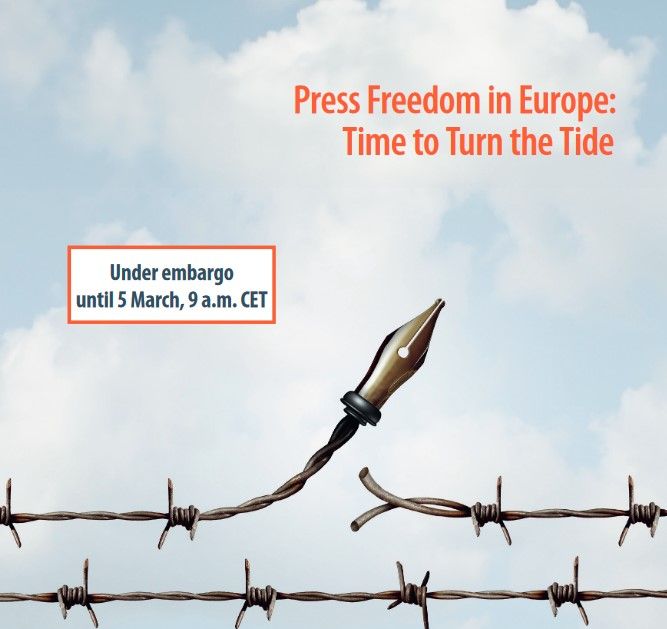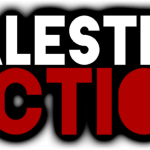The AEJ joined 14 other partner organisations of the Council of Europe’s Platform for the Safety of Journalists on March 5 to urge action on spyware tools, visas, and journalists’ safety.
The call came with the launch of the Platform’s latest annual report on media freedom, live streamed on the platform’s website.
“Press Freedom in Europe: Time to Turn the Tide” assesses and details the main threats to media freedom in Council of Europe member states, Russia and Belarus based on alerts published in 2023, and specifies a number of priorities for Platform partners to pursue.
On surveillance it calls for Council of Europe member states to take a number of measures:
- a moratorium on the export, sale, transfer, and use of highly intrusive spyware tools such as Pegasus;
- clearer, stronger regulatory frameworks;
- stop the unlawful deployment of spyware against journalists;
- comply with obligations under the European Convention on Human Rights;
- guarantee the strongest possible legal safeguards even when deployed for national security;
- improve national oversight systems;
- ensure judicial authorities fully investigate all alleged spyware abuse;
- establish rigorous procedures on the examination, use and storage of any obtained information;
- grant journalists a right to an effective remedy against unlawful surveillance.
On visas the 2024 report urges CoE member states to:
- establish humanitarian visa schemes;
- take measures to protect journalists facing imminent danger or persistent persecution in third countries and facilitate the issue of visas for journalists in such situations;
- set up or broaden existing relocation programmes;
- increase awareness among state bodies about the importance of journalists’ work, risks and needs;
- provide adequate support to journalists residing in their country, including the opportunity to continue their work.
On the Journalists Safety Campaign the Platform annual report calls for the national committees and designated national “focal points” to ensure that the concerns, findings and proposals of representative, independent journalists and media organisations are taken into account and contribute to reforms and improvements.
It also calls for the Council of Europe and member states to:
- support designated national “focal points” to advocate for the full implementation of the 2016 Journalist Safety Recommendation;
- build their role as independent interlocutors for journalists at risk;
- reform police and justice systems to genuinely take account of journalists’ rights to work freely and without fear;
- use the campaign to tackle abuse and harassment of journalists;
- promote constructive engagement with journalists and other civil society stakeholders and independent experts;
- cooperate with NGOs and other expert institutions in monitoring the campaign and improving action on concerns highlighted by Platform alerts;
- properly consider and respond without delay to each alert published on the Platform and take effective remedial actions;
- encourage the expression of unequivocal support by government officials and political figures to promote media freedom, refrain from hostile, insulting or demeaning comments about journalists, and make public commitments to end harassment of journalists.








